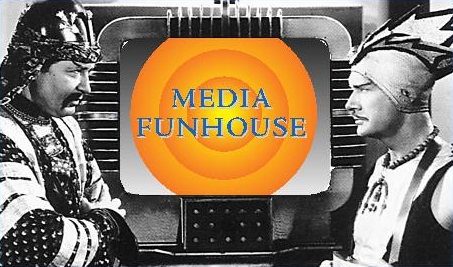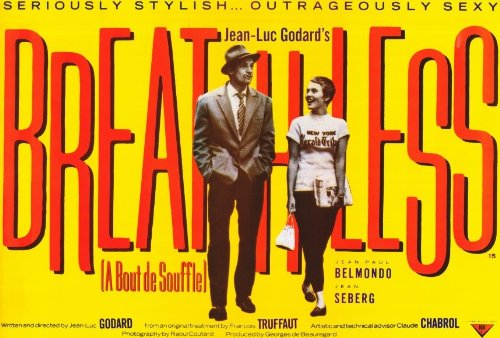Gus Van Sant’s Milk was one of 2008’s most critically heralded films, and qualifies as a strong contender at the Oscars. Sundance was abuzz with talk about the gay love story starring Jim Carrey and Ewan McGregor, I Love You Phillip Morris. Has Hollywood finally comes to terms with gay images onscreen in the wake of the megahit Brokeback Mountain, and if so, have indie video labels that specialize in LGBT films gathered greater traction with retailers?
There’s no disputing that gay cinema has come a long way since tense dramas about characters’ homosexuality being “exposed” were the only times gay characters were prominently featured (Victim, The Sergeant). Those pictures began to fade after the gay rights movement of the Seventies, and the emergence of openly gay European filmmakers (Fassbinder, Pasolini).
“With every mainstream gay film, things go in a new direction,” maintains Michael J. Shoel, President of Ariztical Films. “While Brokeback was about characters who stay in the closet, Milk is about a man who is openly and passionately gay. Harvey Milk didn’t live his life in hiding, which is important for our movies. Our movies are about the gay experience, the openly gay experience.”
Both Brokeback and Milk fit into the established pattern for gay-themed features that hit the multiplex – one is a biopic about a gay real-life individual (like Capote and Gods and Monsters), while the other was a melodrama about characters struggling with their identity (like Boys Don’t Cry). The other two sorts of mainstream films that have featured gay characters are broad farces (like The Birdcage) and AIDS-related dramas (from indies like Longtime Companion to the star vehicle Philadelphia).
The films usually have one thing in common. “They’re made or distributed by the arts divisions of the major studios,” emphasizes Steve Erickson, film critic for the NYC newspaper Gay City News. “The two biggest hits, Brokeback and Milk, were both distributed by Focus Features, which is not exactly that margins of the film business, but they still were not made by the studio itself, like a Michael Bay or Steven Spielberg film.”
Post-Brokeback, it is true that gay characters are more prevalent in multiplex-friendly comedies. The indie successes Little Miss Sunshine, Nick and Nora’s Infinite Playlist and He’s Just Not That Into You feature, respectively, Steve Carrell’s suicidal brother character, a “queercore” rock band and workers at a gay newspaper.
“It still seems, though, like every teen comedy features a number of bad queer jokes,” says Erickson. “Tropic Thunder, though, had a funny closeted rapper who was no more a figure of amusement than the rest of the buffoonish characters.”
“The best example of a gay-friendly mainstream comedy that was dumped by its studio was Bob Odenkirk’s Let’s Go to Prison. It’s a fairly sweet love story about two guys who meet in prison. It could’ve reached a gay audience if the studio had been honest about what it really was.” Whereas the very mainstream, heavily promoted comedy I Now Pronounce You Chuck and Larry? “An embarrassment from start to finish,” declares Erickson.
The closest that the major studios have come to truly supporting gay cinema is when their arts divisions release the works of filmmakers like Todd Haynes (Far From Heaven), Gregg Araki (Nowhere) and Gus Van Sant. “I don’t think a hit like Brokeback opened any doors for them, though. Haynes, Araki and Van Sant opened those doors for themselves,” says Erickson.
As for the buzz surrounding Phillip Morris at Sundance, it’s uncertain whether the film is a bellwether for future mainstream gay pictures. Scott Cranin, Managing Director of Content and Purchasing for the indie label TLA, comments, “Phillip Morris isn’t a Hollywood film per se, it was produced independently. It also did not, despite all the buzz, acquire a distributor at Sundance.”
Representatives from the leading gay independent video labels have different opinions as to whether mainstream hits serve as “gateway” pictures, leading viewers to their product. TLA’s Cranin says, “the biggest effect the hits have is that when the studios release high-quality gay films, customers begin seeking a higher quality of film on DVD.”
Maria Lynn, President of Wolfe Video, calls the interaction between film and society “a chicken or the egg situation. People are coming out and being accepted, and gay films are also being accepted. It’s hard to say which came first. What we’re seeing is that the conversation in society is showing up in our art.”
Ariztical’s Shoel feels that cable series like Queer as Folk and The L Word have had a greater impact in terms of bringing viewers to independent product. “Queer as Folk was so well-marketed that you saw posters and billboards everywhere. It signaled the ‘commoditization’ of gay imagery.”
Gay-themed films in the multiplex don’t immediately translate into sales for the indies. “It’s still a tough sell,” says Water Bearer Films’ President Michael Stimler. “There are certain stores that are never going to carry gay and lesbian cinema. On the other hand, a core of stores has responded. They’ve seen a market they can respond to, and have thought ‘we can make money off of them.’ It’s a positive in the long run.”
Wolf’s Lynn notes that Netflix is very open to acquiring gay titles. “Netflix is very good at picking product that has a long-term net effect, that reaches niche audiences. They make recommendations of similar titles to customers, and are working on incorporating their social network.”
The technological shift that bodes well for gay cinema is the digital download. Says TLA’s Cranin, “We see it as something that will segueway to something else, which is viewing the downloads on a television. We see it as a nascent business, one that’s not yet fully realized.”
Although Amazon and other sites offer downloads, “the consensus is that there’s iTunes, and then there’s everybody else,” says Lynn. She likes the integration of gay product into the central categories, favoring the LGBT label as a “sub-category. In the traditional sections, these films are more accessible to the viewer.”
Water Bearer’s Stimler disagrees, and stresses the need for a separate, primary category for the films. “The problem is that iTunes won’t commit to creating the category. Our films get lost in the comedy or drama sections. It’s the same trouble that retailers had 10-12 years ago, the problem of whether to use the word ‘gay’ for all these films. The idea should be that retailers are trying to maximize their profits. In doing that you might have to offend a little old lady in Wyoming. Bite the bullet!” —Ed Grant



